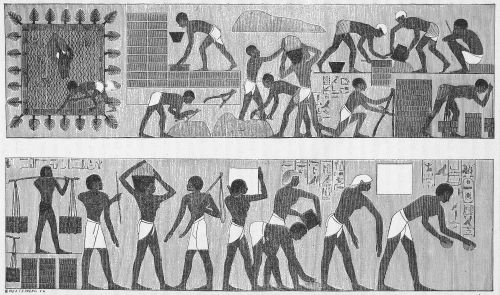Feedback archive → Feedback 2012
Does the Bible promote injustice?
Slavery, morality, and the positive effect of the Bible on society
In this feedback article, CMI’s Lita Sanders and Dr Don Batten address concerns and objections concerning the slavery and the morality of the Bible.

J.P. writes:
Hello!
A friend of mine asked a question concerning Exodus 21, where it states that if a man beats his slave and the slave dies then the master is not held responsible. But if the slave dies then he is. This is quite hard to explain, after reading your take on slavery in the Bible. I have already explained to my friend that slavery in the Hebrew sense was actually servitude, but how do I explain this passage? It seems self defeatist almost. Why would a man be allowed to beat another man even though the man was his slave? Harming anyone physically is wrong, but in same cases such as self defense is it “understandable”.
I would really like some insight on this …
Thank you,
J.P.
Dear J.,
Thanks for writing in. I assume there was a typo in your email, and you meant “if the slave doesn’t die then the master is not held responsible.”
It’s important to note that corporal punishment by beating was allowed as a punishment in multiple spheres of life. Parents were expected to beat their children to ensure behavior, to the extent that the Jews could say a parent who didn’t beat his children hated them (Proverbs 13:24). Adult Jews could be beaten by the city elders or synagogue officials for various offenses.
In this particular case, the slave is probably an indentured servant serving for a particular period of time, for example, to pay off a debt or theft. It is not inconceivable that in these circumstances, someone would sell, say, seven years of their labor, but then slack off until their time was up. It would be just like if someone working on a salary was slacking off at work, just because he gets paid the same whether he works or not. So the law allows the owner a way to make sure he gets his ‘money’s worth’ by permitting an incentive to work.
In this case, I think bad translation is partly to blame for some of the misunderstanding. I think the best translation of the passage is this: “When a man strikes his slave, male or female, and the slave dies as a direct result, he shall be avenged. But if the slave gets up after a day or two, he is not to be avenged, since the slave is his property.”
If two free men were fighting and one of them is injured for a few days and is unable to work, the verses directly before this command that the person who injured him pays him for his time. In the case of a slave, the master has already paid for his time, so no further payment is required. But if the slave dies as a direct result of the beating, the master is punished for murder.
I hope these thoughts are helpful.
Sincerely,
Lita Sanders
Albert E. from the United States writes in response to Who created God?
Really? I mean is this the best you theists can do? Is this your best answer? This article does not tell me squat, mostly what it’s doing is referring back to that incompetent book the bible! You can thank that book for me being Atheist, and I actually do something that most of you theist don’t do, and read the whole bible. I do have a few questions for y’all, If this God is/was loving and is real, then why does he promote hate, murder, rape, intolerance, etc.?
Here is a link for you theists [Web link removed as per our feedback rules—Ed.]
Study the bible a little more before you start debating it!!
CMI’s Dr Don Batten responds:
Dear Albert,
You have not engaged the logical arguments of the article. The Bible statements are not the argument; they are cited to show that what the Bible says (for example, about the nature of the Creator) is consistent with the logical argument.
I have read the Bible cover-to-cover many times, as have my colleagues. Your complaints (are they really yours, or have you uncritically accepted third party gripes?) are nothing new and have been answered in detail: Is the Bible ‘evil’? Here is a hint to many of these (not all): because the Bible describes something does not mean it condones it.
Here is something else to ponder: if the Bible is such an evil book that it supposedly “promotes hate, murder, rape, intolerance, etc.”, why is it that countries that have been most influenced by the Bible are those that are the most peaceful, secure and tolerant? See Mostly masterful defence of Christianity; pity it’s slack on creation (review). In contrast, you would not want to live in Stalin’s Russia where atheism was forced on everyone (or North Korea), or Saudi Arabia where the Koran is the dominant influence, or India, where Hinduism enforces poverty on those labelled ‘untouchables’ and where to help people most in need of help brings ‘bad karma’ on you personally (because you are interfering with the ‘law’ of karma where the station of a person in this life is due to their deeds in a former life), so people do not help others in need, etc.
Think about it.
Kindest regards,
Don Batten







Readers’ comments
Comments are automatically closed 14 days after publication.